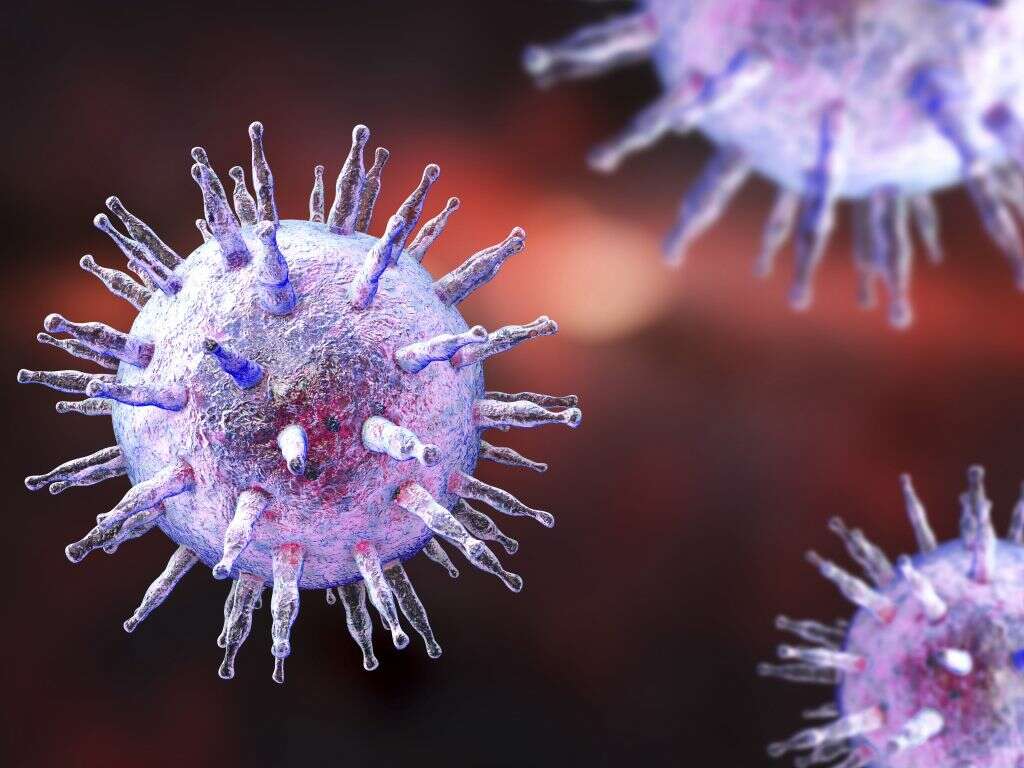What Is Glandular Fever?
There are many pathogens around us at any one time, and we have to take care to be sure that we remain as safe as possible. No matter how many precautions we might take, however, we can never make ourselves completely protected.
Thus, it is almost inevitable that we will fall ill at some point, and among the most common disease is glandular fever. Glandular fever is a disease that tends to affect young people, although it can affect people of all ages. It is thankfully not usually serious but it can develop into something more serious if due care is not taken.

1. Epstein-Barr Virus
If you have a sore throat then there is a good chance that you have glandular because it is among the most common causes of the symptom. You can also expect to have some other unwelcome symptoms in addition to the sore throat.
It is caused by the Epstein-Barr virus, a virus that will infect approximately 90% of all people by the time they are 25 years old. Despite so many people catching the virus, the majority will not show any symptoms at all. The disease can still be transmitted regardless of whether or not the patient is showing symptoms, however.

2. Kissing Disease
Glandular fever has a number of other names, one of which is the kissing disease. It gets this name because the virus is often transmitted through an infected person’s saliva – something that is likely to happen during a kiss. It also means that people can catch it if they share drinking vessels, utensils, or crockery with an infected person.
It is well known that we should limit contact with people that are ill, especially when it comes to bodily fluids. As mentioned, however, a lot of people with glandular fever will show no symptoms. This makes it very difficult to know who to avoid.

3. Adolescents
Those people who are most at risk of glandular fever are adolescents and young adults. This is largely down to their lifestyle choices such as going out socializing with other people. This can bring them into close people who are infected themselves. Young people that have not had the disease yet would not have developed and immunity to it, leaving them vulnerable when they come into contact with it.
People are also more likely to contract glandular fever if they share drinking vessels, cutlery, and crockery with other people. While adolescents are most likely to get it, however, it can affect people of all ages.

4. Weakened Immune Systems
Glandular fever is not usually a serious disease, and our immune systems are usually strong enough to protect us against it. For people with an immune system that has been weakened, however, there is a much greater chance of them getting the disease.
Some people might be taking medication that weakens their immune system, thus increasing their chances of getting ill. Other people with diseases like AIDS are also more likely to get glandular fever than other people are. In addition to being more likely to catch it, the impact of the disease is also likely to be greater to people with a weakened immune system.

5. Sore Throat
The main symptom of glandular fever is a sore throat, and it can be very sore indeed in many cases. It is also common for the patient’s lymph nodes to become swollen, particularly those in the neck. This occurs because the lymph nodes need to start working harder in order to help fight the infection, thus causing them to grow larger than they usually would be.
A fever is also a common symptom as the body heats itself up to make it a hostile place for intruders. These symptoms can often lead to glandular fever being mistaken for the flu.

6. Lethargy
In addition to the symptoms already mentioned, patients with glandular fever will also often feel lethargic. They will often feel as they have no energy to do anything regardless of how much rest they might be getting. It is usually recommended that the patient get as much rest as they can anyway.
In addition to feeling tired, the patient can also experience aches and pains in their muscles and joints. This is because the immune system’s response to the intruders can cause the patient’s body tissues to become inflamed. A headache is also a fairly common symptom of glandular fever.

7. Warning Signs
Glandular fever is usually a fairly mild disease and will usually pass without any serious issues arising. It can, however, be serious to a small number of people and it is a good idea to be aware of the signs that it is becoming serious. One of these is that the patient does not recover if a couple of weeks have passed.
Glandular fever can also lead to an increased risk of an enlarged spleen, which can itself cause problems for the patient. Signs that this has happened include jaundice, and a sudden pain in the left side of the abdomen. An enlarged spleen can also lead to breathing difficulties.

8. Treatment
Glandular fever is caused by a virus, and this means that anti-biotics will not work. The immune system can usually handle the virus itself, however, and the patient will usually make a full recovery in a few days or so. There are also some measures the patient can take to help speed up their recovery.
It is advisable that the patient gets as much rest as they can, not as though they will be feeling particularly active anyway. The patient should also be taking on plenty of fluids. Painkillers will help relieve aches and pains, and headaches, while lozenges can help to soothe and numb a sore throat.

9. Avoid Activities
As mentioned previously, it is a good idea that patients rest up as much as they can to help them recover sooner. With more rest, the body is able to use more resources in the fight against the disease, thus helping them to recover sooner. There is also another very good reason for people with glandular fever to take it easy:
Glandular fever can cause the spleen to swell up, and this can increase the chances of it rupturing. Because contact sports and similar can cause a spleen to rupture, especially when swollen, it is wise to avoid such activities.

10. Prevention
Glandular fever is a highly contagious disease, making it difficult for us to be completely safe from it. However, there are some basic steps we can take to protect ourselves from it, and also from other contagious diseases. One of the most effective of all methods is to wash your hands regularly and thoroughly.
The fact that so many people with glandular fever will not be showing symptoms makes it very difficult for us to avoid exposure. However, using common sense such as avoiding people that are obviously sick can still significantly help to reduce the odds that you will catch the disease.












